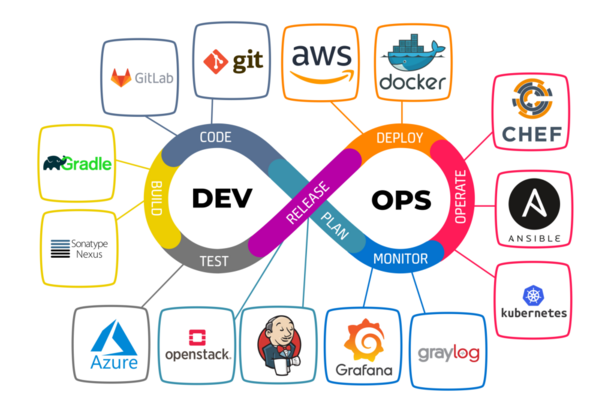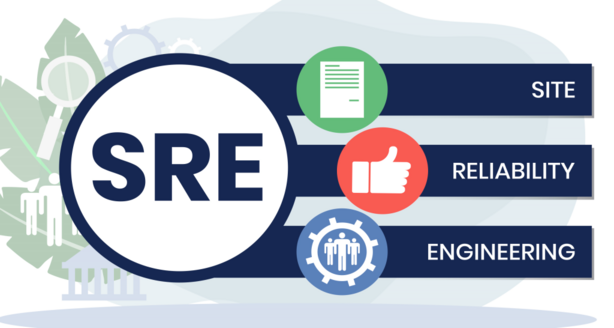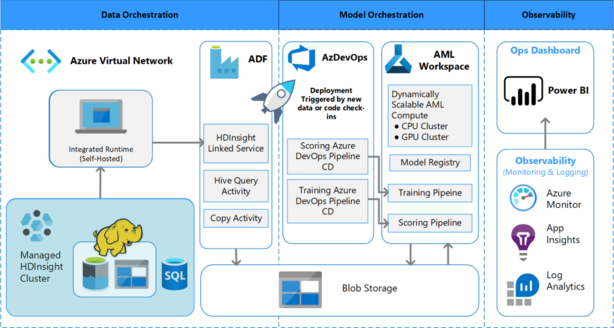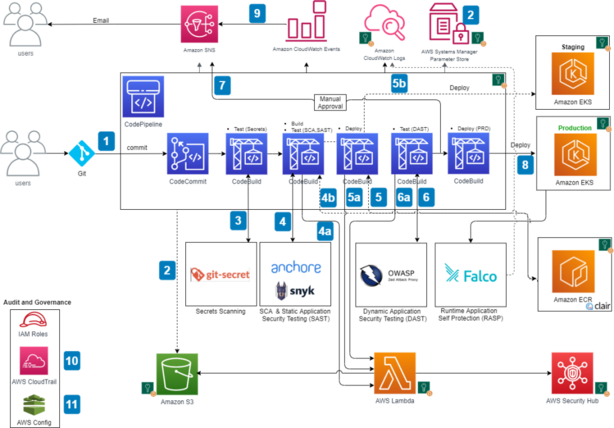In this tutorial I’m going to share top 10 IT Certification in the world who help to grow your carrier in fast way also we ‘having covering a range of specializations and skill levels.
IT certifications are an essential part of the tech industry, as they help professionals demonstrate their skills and knowledge to potential employers. With so many options available, it can be challenging to determine which certifications are worth pursuing.

The DevOps Certified Professional (DCP) is a certification offered by DevOpsSchool Institute. It is designed to validate the skills and knowledge of DevOps professionals in the areas of continuous integration, continuous delivery, and continuous deployment.
DevOps Certified Professional is a modern approach of software development process which overcomes the challenges of earlier working models where now Development and Operation team work together in collaboration and sharing end to end responsibilities from Requirement gathering >> System Design >> System implementation >> System testing >> System deployment >> System maintenance and monitoring and gathering feedback from the end users, then again implementing the changes and releasing the product without delaying any time.
2. SRE Certified Professional (SRECP)

An SRE certification course is a training program that teaches the principles and practices of Site Reliability Engineering (SRE). SRE is a discipline that combines software engineering with traditional system administration to build and run scalable and reliable software systems.
Topic They are covered in this certification
- SRE principles and practices
- Service level objectives (SLOs) and error budgets
- Monitoring and observability
- Automation and tooling
- Incident management
- Capacity planning
- Security and resilience
3. AiOps Certified Professional

AIOps Artificial Intelligence for IT Operations,” refers to the application of artificial intelligence (AI) and machine learning (ML) techniques to enhance and automate various aspects of IT operations and management. AIOps aims to improve the efficiency, accuracy, and effectiveness of managing and monitoring complex IT environments. AIOps is a discipline that uses artificial intelligence (AI) and machine learning (ML) to automate and improve IT operations. It can be used to detect and resolve incidents more quickly, improve resource utilization, and optimize IT processes.
Topic They are covered in this certification
- The principles of AIOps
- The different components of an AIOps platform
- The use of AI and ML in IT operations
- The benefits of AIOps
- The challenges of AIOps

Here are some of the benefits of getting an AiOps Certified Professional certification:
- Demonstrate your skills and knowledge to employers
- Advance your career in AIOps
- Gain access to exclusive job opportunities
- Stay up-to-date on the latest AIOps practices
- Build a network of fellow AIOps professionals
4. MLOps Certified Professional

“MLOps” stands for “Machinem Learning Operations.” It refers to a set of practices and techniques that aim to streamline and optimize the process of deploying, managing, and maintaining machine learning models in production environments. MLOps extends the principles of DevOps to the field of machine learning, with the goal of improving collaboration, automation, and the overall efficiency of machine learning workflows. MLOps promotes collaboration between data scientists, machine learning engineers, software developers, and operations teams. Effective communication and collaboration are crucial for creating and deploying successful machine learning models.

Here are some of the benefits of getting an MIOPS Certified Professional certification:
- Demonstrate your skills and knowledge to employers
- Advance your career in photography
- Gain access to exclusive job opportunities
- Stay up-to-date on the latest MIOPS products and techniques
- Build a network of fellow MIOPS users
5. DevSecOps Certified Professional (DSOCP)

DevSecOps is a practice that integrates security into the entire software development lifecycle (SDLC), from planning and design to development, testing, deployment, and operations. It is an extension of the DevOps methodology, which focuses on the collaboration between development, operations, and security teams to deliver software faster and more reliably. This certification course will cover a wide range of topics that include how DevSecOps provides the business value and the ability it has to enable the business and support an organizational transformation with the ultimate goal of increasing productivity, reducing risk, and optimizing cost in the organization.
Architecture of DevSecOps Certifcation
DevOps Pipeline:
The DevOps pipeline is the core of the architecture. It consists of various stages, including code development, testing, deployment, and monitoring. Each stage contributes to the overall software delivery process.
Security Integration:
Security practices are integrated into every stage of the pipeline. This ensures that security concerns are addressed from the earliest stages of development, reducing the risk of vulnerabilities making their way into the final product.

Automated Security Testing:
Automated security testing tools are used to scan the code for vulnerabilities, configuration errors, and other security issues. These tools provide continuous security assessments throughout the pipeline.
Security Gates:
Security gates are checkpoints that prevent code from progressing to the next stage if it fails security tests. This helps catch vulnerabilities early and ensures that only secure code is promoted to production.
Continuous Monitoring:
Monitoring tools are employed to continuously monitor the production environment for any security threats or anomalies. This helps in detecting and responding to security incidents in real time.
Infrastructure as Code (IaC):
Security configurations are defined as code using Infrastructure as Code (IaC) practices. This ensures that security policies are applied consistently across all environments and infrastructure.
Container Security:
For applications deployed in containers, container security tools are used to scan container images for vulnerabilities and ensure that containers are isolated and properly configured.
Security Orchestration and Automation:
Security orchestration and automation tools streamline security processes by automating repetitive tasks, incident response, and compliance checks.
Identity and Access Management (IAM):

IAM practices are implemented to manage user identities and control their access to resources. This includes role-based access control, multi-factor authentication, and least privilege principles.
Vulnerability Management:
Vulnerability management tools track and prioritize vulnerabilities in the software, libraries, and dependencies. They help teams address vulnerabilities in a timely manner.
Security as Code:
Security policies, configurations, and best practices are defined as code and stored in version control. This ensures that security is treated as a first-class citizen and can be reviewed, audited, and improved over time.
Training and Education:
Teams receive training on secure coding practices, threat modeling, and security awareness to ensure that security is a shared responsibility across development, security, and operations teams.
6. DataOps Certified Professional

DataOps Certified Professional (DOCP) certification is a certification program offered by DevOpsSchool. It is designed to validate the knowledge and skills of professionals in the field of DataOps.DataOps is a discipline that combines DevOps and data science to automate and improve the data lifecycle. It can be used to improve the speed, quality, and reliability of data-driven decision-making.
They they are covered in this certification program
- The principles of DataOps
- The different components of a DataOps pipeline
- The use of DevOps and data science in DataOps
- The benefits of DataOps
- The challenges of DataOps
- Demonstrate your skills and knowledge to employers
- Advance your career in data science
- Gain access to exclusive job opportunities
- Stay up-to-date on the latest DataOps practices
- Build a network of fellow DataOps professionals
7. AWS Certified Solutions Architect – Associate

The AWS Certified Solutions Architect – Associate certification is a foundational level certification that validates the skills and knowledge of professionals who can architect and deploy solutions on AWS. It is designed to assess candidates’ ability to design, deploy, and operate scalable and reliable applications on AWS.
Topic they are covered in certification program
- Compute services: EC2, Lambda, ECS, Fargate
- Storage services: S3, EBS, EFS, RDS
- Networking services: VPC, Route 53, CloudFront
- Database services: RDS, DynamoDB, Redshift
- Analytics services: Athena, QuickSight, SageMaker
- Machine learning services: Rekognition, Lex, SageMaker
- Security services: IAM, CloudTrail, CloudWatch

The AWS Certified Solutions Architect – Associate certification is a valuable credential for professionals who want to demonstrate their expertise in cloud computing. It can help you advance your career in cloud computing and gain access to new job opportunities.

Demand for Azure Architect Technologies is increasing day by day in IT organizations. It has a great future. Azure is one of the fast-growing cloud platforms. We are going to introduce to you about our one of that the best Azure Course that name is Master in Azure Architect Technologies. This training and certification course program designed for beginners and IT professionals in online mode. To become an Azure Certified Solution, an organization must pass a certification exam in a specific area of Azure. The exams are offered in a proctored format and consist of multiple-choice questions. An Azure Solutions Architect is a professional responsible for designing and implementing solutions on the Microsoft Azure cloud platform. They work with organizations to understand their business needs and requirements and then design and deploy solutions that leverage Azure’s services and capabilities to meet those needs.
Role and Responsibilities:
Solution Design: Azure Solutions Architects design solutions that align with an organization’s business objectives. They gather requirements, assess existing systems, and create a blueprint for how different Azure services will be used to build the solution.
Architecture Design: They design the overall architecture of the solution, including infrastructure, networking, storage, security, and application components. They ensure that the architecture is scalable, reliable, and optimized for performance.
Service Selection: Azure Solutions Architects choose the appropriate Azure services based on the requirements of the solution. They consider factors such as data storage, compute resources, networking, security, and analytics.
High Availability and Disaster Recovery: They design solutions with high availability and disaster recovery in mind. This includes designing failover mechanisms, load balancing, backup and restore strategies, and geo-redundancy.
Security and Compliance: Security is a top priority. Architects design security measures to protect data, applications, and resources. They implement identity and access management, encryption, network security, and compliance controls.
Integration: Solutions often require integration with on-premises systems, third-party services, or other cloud platforms. Architects design integration solutions using Azure services like API Management, Logic Apps, and Event Grid.
Cost Management: Azure Solutions Architects consider cost optimization when designing solutions. They recommend cost-effective resource provisioning, auto-scaling strategies, and resource allocation.
9. Kubernetes Administrator Professional

Certified Kubernetes Administrator (CKA) program provides assurance that CKAs have the skills, knowledge, and competency to perform the responsibilities of Kubernetes administrators. This “CERTIFIED KUBERNETES APPLICATION DEVELOPER (CKAD)” Program is the only course in the WORLD which can make you an expert and proficient Architect in DevOps, DevSecOps and Site Reliability Engineering (SRE) principles together.
A Kubernetes Administrator Professional would have the skills and knowledge to do the following:
- Install and configure Kubernetes
- Manage Kubernetes resources, such as pods, deployments, and services
- Troubleshoot Kubernetes problems
- Automate Kubernetes tasks
- Secure Kubernetes deployments
The Kubernetes Administrator Professional certification is offered by the Cloud Native Computing Foundation (CNCF). The certification exam covers a wide range of topics related to Kubernetes, including:
- Kubernetes architecture
- Kubernetes concepts
- Kubernetes commands
- Kubernetes troubleshooting
- Kubernetes security
10. Master in Data Science Certification

Data is the new gold, and companies are constantly seeking professionals who can extract valuable insights from vast amounts of data. A Master in Data Science certification will equip you with the necessary skills to analyze and interpret complex data sets, making you an invaluable asset to any organization. Data science is a multidisciplinary field that combines computer science, statistics, and mathematics to extract insights from data.